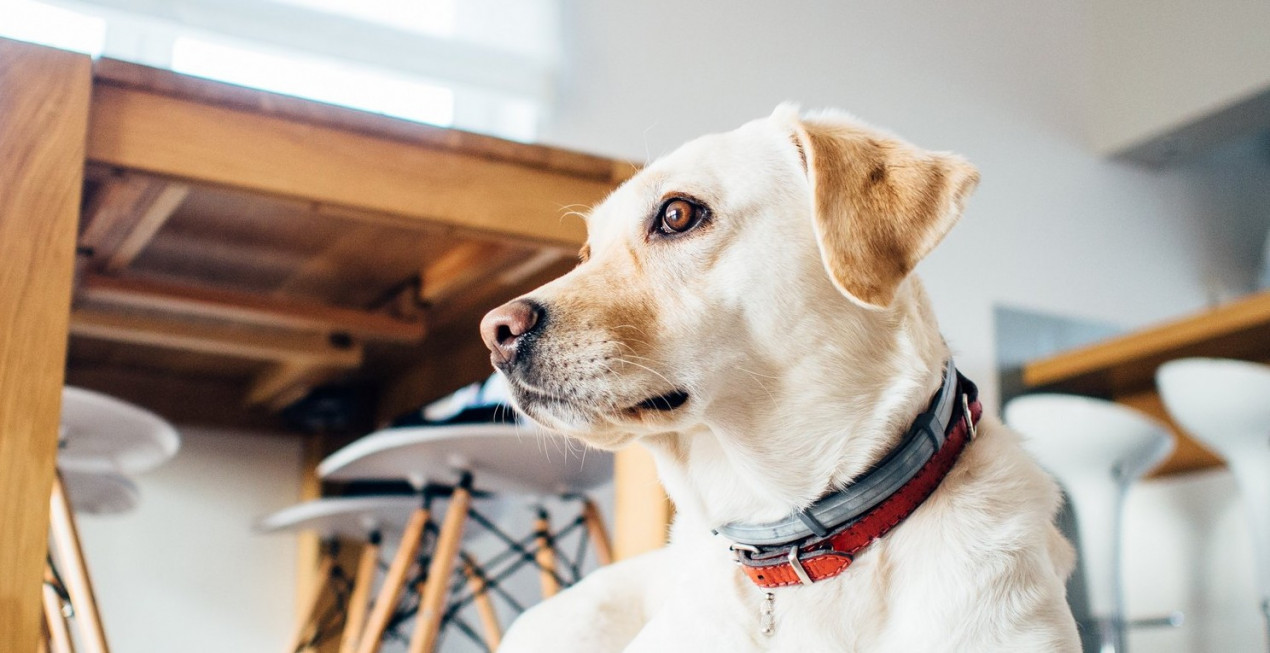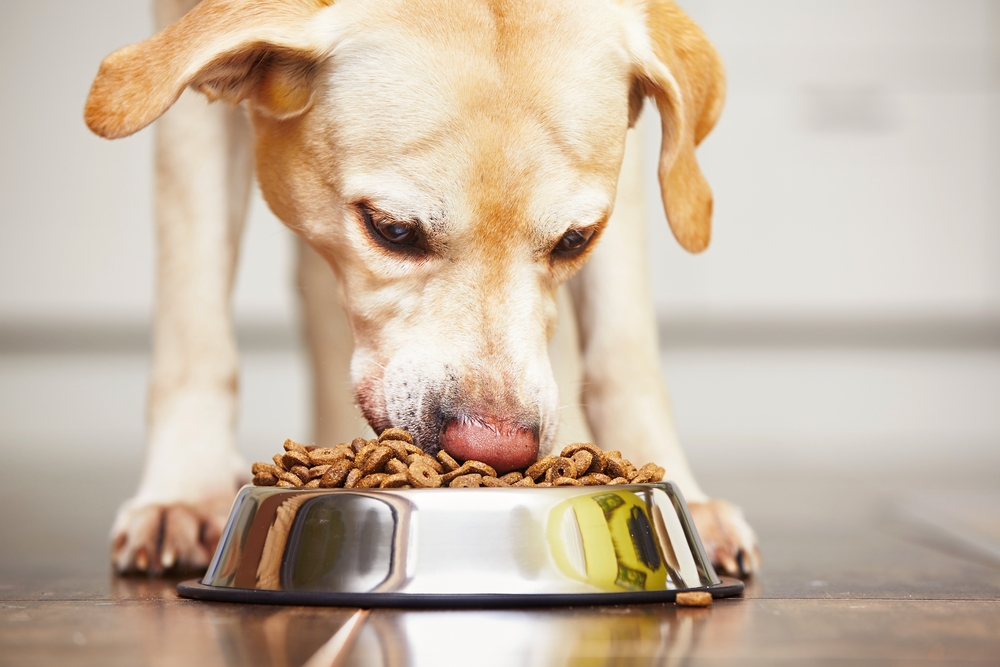
Has my dog got anorexia?
Animal eating disorders are more common than people think. Anorexia in animals simply means a loss of appetite (as opposed to not being hungry). There are two types of anorexia. True anorexia is a genuine refusal to eat and is strongly associated with serious illness, while dogs with pseudo-anorexia do want to eat but can’t because of difficulty chewing, picking up, or swallowing food.
Your dog will be diagnosed with anorexia if they change their eating habits and consistently refuse to eat. You should be particularly concerned if your dog has always been a good eater but suddenly goes off food.
Causes of my dog or puppy not eating or drinking
Dogs may go off their food because of changes in their environment, stress, an adverse reaction to drugs, and nausea. Dental problems, pain and internal obstructions can also cause dogs to lose their appetite. There is also the possibility your dog is just fussy and turning their nose up at the food you’re offering them, but it’s important you establish this is the case with your vet and rule out other causes.
In some cases, however, there may be another reason your dog won’t eat. As is the case with humans, loss of appetite in dogs is a common symptom for lots of serious diseases and conditions. There are many causes that can lead to your dog or puppy not eating or drinking. For example, pyometra, cancer and kidney or liver problems can cause an animal to eat less or stop eating altogether.

What to do if your dog is not eating?
Anorexia in dogs is a life-threatening condition. Untreated for several days, it can lead to malnourishment and dehydration. You should contact your vet straight away if your dog or puppy is refusing to eat, even if they’re acting normally.
How about baby food for dogs who won't eat?
Stage two baby food, especially meat flavours like beef or turkey, is a good option for dogs who refuse to eat (as long as they’re not on a special or restricted diet). Just make sure there are no harmful foods such as onion or garlic powder in the ingredients. You might also want to warm the food up a little first.
My dog isn't eating but acting normal, what should I do?
Loss of appetite should never be ignored, even if your dog’s behaviour hasn’t changed. As has been noted above, it often signals a more serious underlying problem and should be investigated by a vet.
Old dog losing weight, is this normal?
As older dogs begin to slow down, they take less exercise and often gain weight. So if your old dog is losing weight there is almost certainly an underlying cause. Bear in mind weight loss is a symptom of several illnesses including diabetes, heart, liver or kidney disease and cancer. It can also be a sign of poor digestion, dental disease, or an inability to swallow. Weight loss in older dogs is not normal so always consult your vet if your old dog is losing weight.
Why is my dog not eating but drinking water?
A dog is drinking excessive amounts of water (a condition referred to as polydipsia) but refusing to eat could be a symptom of many things, including diabetes, liver disease or an infection, among others. If your dog is drinking lots but not eating, contact your vet who will be able to discuss diagnosis and treatment with you.
Diagnosing loss of appetite in dogs
Your vet will ask you about your dog’s recent medical history and whether you have noticed any other signs, such as weight loss or vomiting. It is important to try to work out if they have no interest in food or if your dog is hungry but not managing to eat for some reason – in these cases, they will show interest in food and sometimes attempt to eat, but then give up or sometimes run backwards. It’s likely your vet will give your dog a thorough examination and check their teeth to make sure that’s not the source of their problems. They may also run some tests, such as X-rays, ultrasound, taking blood, urine and faecal samples, to check for illness and disease.
Treating dogs for eating disorders
Your vet will be able to advise on treatment after determining the underlying reason your dog has lost their appetite. If they have dental disease and sore teeth, they may need some teeth extracted under general anaesthetic. If your pet is anorexic due to disease, treatment will depend on the diagnosis.
It’s important to get your dog eating again as soon as possible. If your vet has advised you to tempt your dog to eat, here are some tips:
- warm the food up
- offer strong-smelling foods
- try different brands of pet food
- try hand feeding
- check your dog’s nose is clean (the smell of food may help stimulate their appetite)
If it turns out your dog is just being fussy about food, you should avoid repeating bad habits such as giving them treats during the day and feeding them scraps from the table. Stick to a strict routine and always make sure their food is not spoiled or out of date.
How can I prevent my dog not eating?
Given the numerous possible causes, it is impossible to completely prevent the risk of your dog losing their appetite, but there are some things you can do to minimise some of the risks, such as keeping objects out of reach that if eaten, could potentially cause an internal obstruction.

